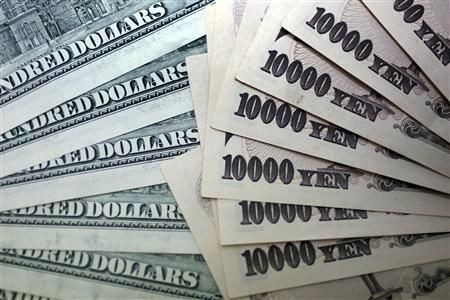Bank Of Japan Keeps Policy Measures Unchanged

The Bank of Japan Tuesday kept its key policy rate unchanged and refrained from announcing any monetary easing measures in spite of the political pressures to pursue aggressive stimulus steps for reviving the economic growth momentum.
With Japan's gross domestic product contracting in the third quarter compared to that in the previous quarter, policymakers are under pressure to ease the monetary policy further.
The data released earlier this month by the Cabinet Office showed that the country’s GDP, which measures the annualized change in the inflation-adjusted value of all goods and services produced by the economy, shrank to 0.9 percent in the quarter ending Sept. 30, down from a 0.1 percent rise in the previous three months.
Also last week, Japan faced a sudden development on the political scene with Prime Minister Yoshihiko Noda dissolving the Diet ahead of the general elections to be held Dec. 16. Investor confidence rose amid the hope that the main opposition, the Liberal Democratic Party, led by Shinzo Abe, the proponent of aggressive the monetary easing measures, would win the next elections.
“The Bank of Japan could also come under pressure to ease further, particularly from the government. However, financial conditions are already very accommodative and have arguably reached a state of saturation. As such, we doubt the Bank will expand its asset purchase program again this year but instead focus on growth-supporting measures such as the recent cheap loans scheme,” Capital Economics said in a note.
Last month, the BoJ announced more monetary easing policies and expanded the asset purchase program (APP) by about 11 trillion yen ($138 billion). This brings the total size of the APP to about 91 trillion yen, of which 25 trillion yen is in loans and the remaining 66 trillion yen is for asset purchases. The policy board agreed on a further five-trillion yen each of Japanese government bonds and treasury bill purchases and announced 0.91 trillion yen of purchases of risk assets.
Earlier this month, the central bank assured that it would continue to ease the monetary policy to help the country overcome deflation and return to a sustainable growth path. While the goal of the BoJ is 1 percent in terms of the year-on-year rate of increase in the consumer price index, Japan continued to remain in deflation in September for the fifth straight month.
The central bank noted that exports and industrial production had been relatively weak as overseas economies had moved somewhat deeper into a deceleration phase. It is expecting that exports and industrial production will remain relatively weak for the time being affected by the prolonged state of economic slowdown in China, the situation of the protracted European debt problem and the U.S. economy recovering only at a moderate pace.
© Copyright IBTimes 2024. All rights reserved.




















